For its 25th anniversary in 2016, Robert Zajonc Institute for Social Studies celebrated the close-knit relationship with University of Michigan, especially the ISR, which shaped the Institute success from the very beginning. Its most important aspect is the continuous exchange of academic staff, in particular the trips of our young researchers and doctoral students to ISR and ICPSR program. Since 1991, over 60 people have benefited from the exchange, many of whom have made great careers, primarily in academia, but also in Polish public and private sector. Some of them became part of ISS core staff, others have moved to other institutions, but remain in touch as part of ISS community.
Most importantly, ICPSR alumna have become an important part of the University of Warsaw academic staff, contributing greatly to the increase of its international standing and the development of the cooperation with University of Michigan as well as other US universities. Many of those who visited Ann Arbor have contributed to the change and development of Polish social sciences after the fall of communism. This was in accordance with original intention of Bob Zajonc and his collaborators when they invented the ISS in 1991. New approaches, theories and contacts brought from University of Michigan to University of Warsaw by ISS fellows allowed to introduce new models of world-class teaching and methodological sophistication to our alma mater, strengthening its position as the best Polish university.
Since its establishments in 1991, Robert Zajonc Institute for Social Studies is affiliated with the Institute for Social Research at University of Michigan. A major collaborative project of ISR and ISS is the global World Values Survey (WVS) project headed by Ronald Inglehart in ISR and Renata Siemieńska in ISS. Following ISR example ISS established Polish Social Data Archive (ADS) – the on-line platform implemented in cooperation with the Institute of Sociology and Philosophy of Polish Academy of Sciences and financed by Foundation for Polish Science (FNP). The Polish Social Data Archive cooperates closely with the data archive of the Inter-University Consortium for Political and Social Research (ICPSR). The ISS is also an institutional member of the ICPSR.
The ISS is running the Interdisciplinary Doctoral Program with individual studying tracks. Currently 55 students are enrolled in the program, preparing their dissertations under the supervision of ISS members. Students are heavily involved in the Institute’s international research programs offering hands-on training of the new generation of researchers.
For the last 25 years ISS Ph.D. students have regularly participated in the ICPSR Summer Program in Quantitative Methods. Their visits are sponsored by the stipends from the Institute for Social Research, Weiser Center and lately the Eugene and Martha Burnstein University of Warsaw Social Science Scholars Exchange Fund.
This continuous involvement graciously supported by the American partner enabled the long-lasting ties of collaboration and friendship between our Universities, which resulted in numerous research projects and publications. It also allowed for exceptional development of doctoral candidates, who gained unique experience in working in international environment and learning social research methods from the top specialists in the field.
Among institutions that made this collaboration possible from the University of Michigan side the most important are:
- Research Center for Group Dynamics, ISR
- Life Course Development Program, ISR
- Weiser Center for Europe and Eurasia
- Copernicus Program in Polish Studies
- Center for the Study of Complex Systems
We would like to give our deep and personal thanks to people whose efforts allowed this exchange to thrive and continue over the years:
- Robert B. Zajonc, former director of Institute for Social Research and ISS father
- Eugene Burnstein, Research Center for Group Dynamics, ISR
- Richard Gonzalez, director of Research Center for Group Dynamics, ISR
- Genevieve Zubrzycki, director of the Weiser Center for Europe and Eurasia and Copernicus Program in Polish Studies, University of Michigan
- Anna Grzymała-Busse, former director of Weiser Center, University of Michigan (currently Stanford University)
- Michał Żochowski, Department of Physics and The Biophysics Research Division, University of Michigan
From University of Warsaw side the most involved institutions include:
- Robert Zajonc Institute for Social Studies
- Faculty of Management
- Faculty of Psychology
- Institute of Sociology, Philosophy and Sociology Department
Personally, we would like to underline the efforts and continuous involvement of professors Renata Siemieńska, Grażyna Wieczorkowska and Janusz Grzelak, former ISS directors and biggest promoters of collaboration between University of Michigan and University of Warsaw.
We asked some of the exchange alumni to describe their ICPSR experience and its importance for their career:
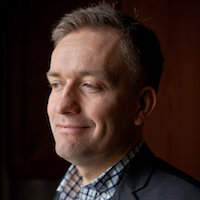 Tomasz Zarycki is Associate Professor and Director of the Robert Zajonc Institute for Social Studies at the University of Warsaw, Poland. He holds habilitation degree in sociology from the Institute for Philosophy and Sociology of the Polish Academy of Sciences. His research focuses on sociology of politics, sociology of culture, sociology of knowledge, critical sociology and discourse analysis with particular focus on Polish and Eastern European societies. His latest book in English is Ideologies of Eastness in Central and Eastern Europe (Routledge, 2014).
Tomasz Zarycki is Associate Professor and Director of the Robert Zajonc Institute for Social Studies at the University of Warsaw, Poland. He holds habilitation degree in sociology from the Institute for Philosophy and Sociology of the Polish Academy of Sciences. His research focuses on sociology of politics, sociology of culture, sociology of knowledge, critical sociology and discourse analysis with particular focus on Polish and Eastern European societies. His latest book in English is Ideologies of Eastness in Central and Eastern Europe (Routledge, 2014).
My ‘98 summer stay in Ann Arbor was undoubtedly the single most important trip abroad in my academic career. Even if it lasted only two months, it appeared to be the turning point in my intellectual development. As it also happened to be my first visit in the US, it had an obvious added value of exploration of the country and its culture, but first of all, it has revolutionized my scholarly agenda and allowed to draw up new ambitious intellectual plans I am still trying to implement. Besides the obvious benefit of learning new, fascinating statistical techniques at the ICPSR summer program, some of the courses I attended appeared to be very stimulating intellectually and allowed me to discover and appreciate the professional culture of American academic education which I value very highly until today. Staying for two months in Ann Arbor allowed me also to meet several University of Michigan professors like Michael Kennedy, James Jackson or Bill Zimmerman, some of whom I cooperate with until today. Meeting so many doctoral students and young academics from all over the world attending the summer school was also a very enriching, stimulating and unforgettable experience. All in all, even taken into the account that I have studied in universities in Western Europe before, this trip was more significant that all my earlier visits abroad taken together. It has allowed me to build the firm foundations for my network of intellectual connections with American scholars, which keeps growing since that key moment. At the same time, the trip has consolidated my relationship with ISS, as I understood that our Institute offers the most spectacular prospects of intellectual development based on international cooperation available at that time at Polish universities.
◊◊◊
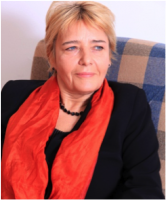 Grażyna Wieczorkowska Wierzbińska, received M.Sc. in Mathematics (1979), Ph. D. (1985), Habilitation (1992, post-doctoral degree) in psychology from University of Warsaw and the professorship nomination by President of Poland in 2000. Her interests cover a broad scope of social psychology (motivation, goal- setting, situational constrains, individual differences in adaptation to changes, cultural differences) and methodological problems in survey data analysis. She teaches managerial psychology and data analysis both on undergraduate and doctoral level. She served as a director of different units of University of Warsaw.
Grażyna Wieczorkowska Wierzbińska, received M.Sc. in Mathematics (1979), Ph. D. (1985), Habilitation (1992, post-doctoral degree) in psychology from University of Warsaw and the professorship nomination by President of Poland in 2000. Her interests cover a broad scope of social psychology (motivation, goal- setting, situational constrains, individual differences in adaptation to changes, cultural differences) and methodological problems in survey data analysis. She teaches managerial psychology and data analysis both on undergraduate and doctoral level. She served as a director of different units of University of Warsaw.
I was the member of the first Polish five-person group, invited to participate in the ICPSR Summer Program by Director of ISR professor Robert Zajonc in 1990 – even before the ISS was formally founded. This were the most work-intense vacation in my life. I attended various classes, soaking in the teaching methodology. I was shocked to find out that the ostensibly spontaneous jokes made by the bootstrapping lecturer – Robert Stine – were precisely planned (I heard their exact repetition in the second group). Didactic Championship! I was impressed with the data visualization show – what can now easily be done using pocket-sized tablets, in 1990 required bringing in mainframe computers from Canada. This was my first trip to the US and I did not leave Ann Arbor even for a moment. Thanks to suggestion made by Martha Burnstein I got an office in the ISR and every free moment I wrote my habilitation book on the point vs interval goal setting strategies. Every day professor Zajonc stopped by to chat, talk about research – we had planned to analyze birth order effect using Polish General Social Survey. The result of this analyzes was used in our joint publication in Journal of Personality and Social Psychology some years later. I felt flattered to see real interest of professor Burnstein (whom I first met in 1981 in Aix-en-Provence at the EAESP summer school) in my research on point vs interval strategies conducted in Poland. It was a start of close research collaboration, which resulted in 3 joint research grants and seven joint publications. My first visit to AA was not the last one – for the next years I spent at least one month a year there, so I can say that AA is my second city (after Warsaw) in terms of the amount of time spent there. Several people close to my heart live or used to live in Ann Arbor: Teresa Livingstone, Carrie and Rich Gonzalez, Hazel Markus and Robert Zajonc, Mel and Jean Manis, Nancy Exelby, Marry Cullen, Dorothy and Claude Steele, Shinobu Kitayama, and the Burnstein big family, who were always ready to help.
In the last decade the roles have reversed – professor Burnstein became a very frequent visitor to Warsaw. It is impossible to overestimate the effect of ISR-experience on my professional career. In 1993 I organized a Polish-American seminar, which was attended by ten ISR doctoral students and two professors: David Winter and Eugene Burnstein. It was a great event: twelve Polish and twelve American presentations. In 2003 we organized a conference in Ann Arbor entitled \”Social Change in Poland. What Have we Learned So Far?\”. Six Polish professors analyzed the systemic change in Poland, the US professors were the discussants. I admit that I have always dreamed of the Polish branch of the ICPSR. We have already performed some very successful trials: WISE (Warsaw International Summer Education) took place each year between 1998 and 2003, and WSAD (Warsaw School of Data Analysis) was organized in 2014. In addition to our staff, courses were taught by US professors like Elliot Aronson, Philip Zimbardo and UM professors: Rich Gonzalez, Rowell Huesmann, Norbert Schwartz, Daphna Oyserman and Eugene Burnstein. However, we still lack the institutional stability and ICPSR remains our unparalled model.
◊◊◊
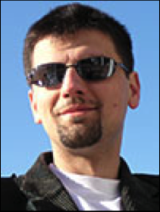 Grzegorz Król, Ph.D, social psychologist, assistant professor at the Faculty of Management, University of Warsaw. Author of monographs and chapters on data analysis (e.g. factor analysis and structural modelling). Developer of data-centric IT solutions for e-learning, event management, and online acquisition of quantitative information. Between 2003 and 2011 organized a number of international conferences and managed European projects in the area of Public Health. Currently his work focuses on effects of activity styles on performance, and on data-centric IT solutions in e-learning & events management. His favorite teaching area is data analysis and statistics.
Grzegorz Król, Ph.D, social psychologist, assistant professor at the Faculty of Management, University of Warsaw. Author of monographs and chapters on data analysis (e.g. factor analysis and structural modelling). Developer of data-centric IT solutions for e-learning, event management, and online acquisition of quantitative information. Between 2003 and 2011 organized a number of international conferences and managed European projects in the area of Public Health. Currently his work focuses on effects of activity styles on performance, and on data-centric IT solutions in e-learning & events management. His favorite teaching area is data analysis and statistics.
I took part in the ICPSR Summer Program in the late 90s, and it was a boosting factor in further development of my skills in data analysis. In these years, it was impossible to acquire in Poland such a wealth of knowledge, and to experience such an excellent method of delivery, as I saw at the University of Michigan in Ann Arbor. From simple regression analysis, and through to multivariate methods and structural modeling, I was amazed with the way lecturers could explain complex mathematical concepts to students in a clear and understandable manner. I remember the multivariate methods course, which was dense with matrix algebra content, and which made me work harder than any other course, but at the same time made me understand multivariate data analysis more deeply.
These experiences bore fruits in the following years. At the University of Warsaw, on several summers, starting 1998, WISE (Warsaw International Summer Education) sessions were organized, inspired by the ISR & ICPSR experiences. In more recent years, in 2014, a 2-week WSAD (Warsaw School of Data Analysis) took place, with a 6-month follow-up cooperation in working groups. It was a highly memorable experience. Thanks to participation and fantastic support of lecturers like professor Gonzalez in both WISE and WSAD, both of these events bore further fruits in a form of several publications: on both occasions, working groups were formed that worked on real datasets, with a very focused aim of learning while producing scientific publications. For me personally, a workshop conducted during WISE session by professor Gonzalez, professor Burnstein, and professor Wieczorkowska, with participation of several PhD students from University of Michigan, was especially successful and memorable – it resulted in a highly cited publication, co-authored with Markus Kemmelmeier (now professor at University of Nevada) and Young Hun Kim (now assistant professor at North Carolina Wesleyan College). I had, back in the late 90s, and I still do teach statistics and data analysis, and I am grateful for all that I could learn from amazing lecturers from ISR, especially professor Gonzalez, who – after the 2014 WSAD session – was announced the best data analysis teacher ever by the participants. Both the method of teaching, ability to explain complex ideas in an easy to understand manner, and exposition to new data analysis tools have changed the way I understand data analysis, and the way I now teach it. Thank you professor Gonzalez, thank you ISR!
◊◊◊
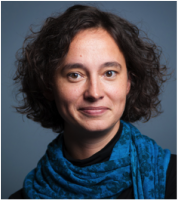 Anna Domaradzka, Assistant Professor and Associate Director for Research at Robert Zajonc Institute for Social Studies, University of Warsaw. In 2011/2012 she was a Senior Fulbright Researcher at the Institute for Social Research, University of Michigan, recently a Kosciuszko Fellow at San Diego State University and Visiting Professor at INCAE Business School, Costa Rica. Her main research interests concern social movements and grassroots activism in urban context. She specializes in intersectional international research concerning urban development, social innovation and civil society. Since 2015, she has been involved in Warsaw Development Strategy 2030 as an expert on social issues.
Anna Domaradzka, Assistant Professor and Associate Director for Research at Robert Zajonc Institute for Social Studies, University of Warsaw. In 2011/2012 she was a Senior Fulbright Researcher at the Institute for Social Research, University of Michigan, recently a Kosciuszko Fellow at San Diego State University and Visiting Professor at INCAE Business School, Costa Rica. Her main research interests concern social movements and grassroots activism in urban context. She specializes in intersectional international research concerning urban development, social innovation and civil society. Since 2015, she has been involved in Warsaw Development Strategy 2030 as an expert on social issues.
Participation in ICPSR summer program in 2004 was a turning point in my career. At that time I was a PhD student in ISS, working in a market research company while striving to start my dissertation. I decided to quit my job to spend two months in Ann Arbor, hoping to learn statistics by day and roam the University Library by night, looking for inspiration. At that time literature on my PhD topic (women movements) was very scarce in Poland and I had access to international publications mainly though my mentor – Renata Siemieńska – bookshelf. I still remember the thrill of discovering a whole room (!) in Harlan Hatcher Library, full of books on the topic. That was how my connection with international science community began, both personal and intellectual, to become an axis of my research and theoretical activities up to now. On my return to Warsaw I was offered a full time Assistant position at the ISS, which enabled me to follow my passion concerning research on civil society, social movements and gender equality. After the PhD I started to work as Assistant Professor in ISS, developing urban sociology and urban movements research in cooperation with Polish as well as international scholars from US, Europe and Latin America. Since 2012 I serve as our Institute Associate Director for Research and International Cooperation, working on creating similar opportunities to our doctoral students and researchers.
The spirit of Ann Arbor summer program remains vivid in my memory – the supportive yet ambitious atmosphere of ICPSR lectures and ISR corridors, where you could ask Hank Heitowit for help in the silliest matters, and expect a joking chat from Deiter Burrell at any time. Afternoon picnics and drinks in Dominic’s allowed for new friendships and brain rest after several hours of getting our heads around Cluster Analysis, MLE and (hardest of all) Bayesian Modeling. It helped that ISR professors and long time friends of ISS – Gene Burnstein and Richard Gonzales – both took care to make us feel at home in the new environment. Slightly nerdy friendships I made that year stay with me till today, turning into grant proposals, publications and scholarship opportunities. No wonder I did my best to return to Ann Arbor, deciding to spend my Senior Fulbright year with Toni Antonucci’s Life Course Development Program. Toni’s guidance and charisma as well as LCD team help (special thanks to Kira Birditt, Christine Arjouch and Noah Webster) created a mighty push, turning me into a full-fledged international researcher. I learned a lot observing Toni’s team working on grant proposals, articles and conference presentation, developing my own research ideas and ambitions based on their example. Each visit at the University of Michigan clearly marks huge shifts in my career, mind and heart, remaining an inspiration and a model to follow in my work as part of ISS leadership.
◊◊◊
Marcin W. Zielinski, PhD. Since 1997 collaborator and then specialist at the ISS Center for Sociological Research, member of the Polish General Social Surveys (PGSS) team and Polish edition of the International Social Survey Programme (ISSP). Co-founder and the head of the Polish Social Data Archive (ADS). Assistant Professor at the Institute of Philosophy and Sociology, Polish Academy of Sciences at the Centre of Sociological Research (ORBS), team member of the Polish edition of the European Social Survey (ESS) and Comparative Analysis of Social Inequality (CASIN). Since 2013 collaborates with the Academy of Special Education in Warsaw.
I was a participant in the ICPSR Summer Program twice, first in 1998 and then in 2003 taking classes in Regression Analysis, Scaling and Dimensional Analysis, LISREL models: General Structural Equations, Mathematics for Social Scientists, Longitudinal Analysis and Categorical Analysis. Apart from educational benefits that are quite obvious, at least two other side aspects of Summer Program were equally important. First of all attending classes at my first stay in Ann Arbor was my first contact with another, much more pragmatic way of transferring knowledge on the methods of data analysis. Combining statistics with methodology was at that time not so popular in Poland where, although both fields were perceived as related, but still treated and taught separately. After Bogdan Cichomski classes during my studies I already suspected that this relation is closer than it would appear from the study plan, but taking classes in Ann Arbor made me sure that not only methodology can be an art of thinking and statistics is only a testing tool, but statistics can be an art as well, serving as inspiration for asking strictly methodological questions. From that time I especially remembered two teachers: Tim McDaniel, who proved that important and serious matters can be discussed in a not necessarily serious, but still highly effective way; and James Dowdy, who proved that discussing important and serious statistical matters in a serious way does not have to be boring. Both of them changed my view on learning process which I start to perceive rather as “selling” instead of simple transmitting knowledge where transmitting does not necessarily mean that it was bought by a student. Secondly, the inspiration. I think that even more important than what one can learn there is to be inspired by people who were trying to convey their knowledge of their own search for solutions to analytical and/or methodological problems. And, what is worthy of notice, in inspiring they are just as effective as they are in conveying their knowledge. These are my own main reflections that I try to pass on to the next generations of participants, serving presently as a National Representative for Polish National Membership in the Inter-university Consortium of Political and Social Research (ICPSR).
◊◊◊
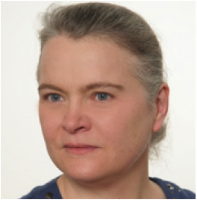 Joanna Czarnota-Bojarska, PhD, is an Assistant Professor, working in Social Psychology team at Department of Psychology, University of Warsaw. Her research focuses on organizational psychology: human adaptation, organization, satisfaction and commitment to work, attachment to organization and organizational behavior.
Joanna Czarnota-Bojarska, PhD, is an Assistant Professor, working in Social Psychology team at Department of Psychology, University of Warsaw. Her research focuses on organizational psychology: human adaptation, organization, satisfaction and commitment to work, attachment to organization and organizational behavior.
After the founding of the ISS and the commencement of the collaboration with the University of Michigan, the annual Young Scientist trips to Ann Arbor began, with the possibility of attending the ICPSR Summer Program in Quantitative Methods of Social Research. I participated in this program in 1992. The summer school program was very rich; I remember how big of a problem I had with the choice of courses. Finally, I decided to attend the lecture Math for Social Scientists, thinking that mathematics I can handle easily, and above all, it gives me the opportunity to get acquainted with English terminology. These were the right predictions; the program covered the problems that I knew from high school, although lectures (and exams) in English were a challenge. In addition, I participated in classes on path analysis and regression analysis, as well as ways to check the relevance of results, among others bootstraping. I also used the library a lot: I admit that I copied all the famous green books of various statistical methods, full of fear that my suitcase would be too heavy on the way back. To this day, I happen to look at those copies that I can easily recognize by their non-standard format (US Letter, not European A4). During my stay in Ann Arbor there was also Grażyna Wieczorkowska, a promoter of my MA thesis, and later a doctoral dissertation. She advised me on various organizational matters, related to the stay, and helped me choose the courses. It was probably at her initiative that we were invited to prof. Zajonc home during one of the holidays. I remember how overwhelmed I was by this fact and how charmed by the direct and homey atmosphere of the meeting. Getting to Ann Arbor and attending the summer school program gave me a lot. I finally found out that there is nothing about statistical methods that cannot be understood. And also that with the right dose of enthusiasm and willingness anyone can be taught them.
◊◊◊
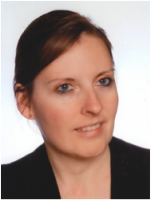 Ilona Matysiak, holds a PhD in sociology and is currently working at M. Grzegorzewska University, Poland. She’s also a member of the Center of Interdisciplinary Gender Studies at the Robert Zajonc Institute for Social Studies, University of Warsaw. Her research interests include demographic changes in local communities (migration, aging), civil society, gender and local governance. She received the Fulbright Senior Award for academic year 2017/2018.
Ilona Matysiak, holds a PhD in sociology and is currently working at M. Grzegorzewska University, Poland. She’s also a member of the Center of Interdisciplinary Gender Studies at the Robert Zajonc Institute for Social Studies, University of Warsaw. Her research interests include demographic changes in local communities (migration, aging), civil society, gender and local governance. She received the Fulbright Senior Award for academic year 2017/2018.
I participated in the ICPSR summer school twice, in 2009 and 2012. The course I enjoyed the most was “Regression I” led by Dr. Saundra K. Schneider. I was really surprised that statistics can be taught in such a nice, funny and, at the same time, extremely professional way. Thanks to my ICPSR experience, I feel much more confident using quantitative methods in my own research. I choose different ways of analyzing data more consciously as I understand them better. In the ICPSR courses all the operations on numbers are calculated by hand and explained in detail. It is really important because you feel more in control of your own analysis and cannot be easily fooled by SPSS or other program. The ICPSR way of teaching statistics is so different compared to the classes, which I attended in Poland as a sociology student. It shows you statistics as a fascinating and accessible subject that can be mastered even by researchers who are used to a more qualitative approach. As a follow up to my ICPSR experience I decided to spend an academic year in ISR, working with Toni Antonucci and her team on my project sponsored by Fulbright.
◊◊◊
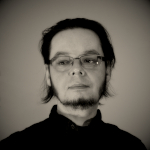 Tomasz Jerzyński, PhD in Sociology. Head of Sociological Research Centre at Robert Zajonc Institute for Social Studies. Since 1997, co-author in a Polish General Social Survey (PGSS) team in cooperation with General Social Survey (GSS) and Allgemeinen Bevolkerungsumfragen der Socialwissenschaften (ALLBUS). Involved in supervising sixteen modules of Polish edition of International Social Survey Programme (ISSP). Working in a team of Social Diagnosis – Objective and Subjective Quality of Life in Poland, based on panel research, since 2003. For the last three years involved in processing and analysis of big-data from traffic monitoring servers.
Tomasz Jerzyński, PhD in Sociology. Head of Sociological Research Centre at Robert Zajonc Institute for Social Studies. Since 1997, co-author in a Polish General Social Survey (PGSS) team in cooperation with General Social Survey (GSS) and Allgemeinen Bevolkerungsumfragen der Socialwissenschaften (ALLBUS). Involved in supervising sixteen modules of Polish edition of International Social Survey Programme (ISSP). Working in a team of Social Diagnosis – Objective and Subjective Quality of Life in Poland, based on panel research, since 2003. For the last three years involved in processing and analysis of big-data from traffic monitoring servers.
From my stay in Ann Arbor I most warmly remember the atmosphere of the lectures. Every day I learned something new, which I immediately wanted to check in the lab. It was pure science without deadlines and evaluations of the usefulness on the market. I brought in a lot of ideas that really influenced what and how I am doing in my work. Social life was also important of course. Atmosphere in Coops. Bike tours. Canoeing. Evening discussions in the bar often accompanied by lecturers and not necessarily on science. It was a very important time.
◊◊◊
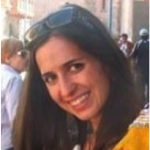 Anna Kuzminska, PhD degree in Economics in the area of Management (University of Warsaw) and an MA degree in Social Psychology (University of Social Sciences and Humanities, SWPS) written under supervision of prof. Eugene Burnstein. Assistant Professor at the Faculty of Management, University of Warsaw. Her research interests include the social and organizational effects of nonhierarchical forms of management, interpersonal trust, metamorphic effects of power, and the influence of money on interpersonal behavior.
Anna Kuzminska, PhD degree in Economics in the area of Management (University of Warsaw) and an MA degree in Social Psychology (University of Social Sciences and Humanities, SWPS) written under supervision of prof. Eugene Burnstein. Assistant Professor at the Faculty of Management, University of Warsaw. Her research interests include the social and organizational effects of nonhierarchical forms of management, interpersonal trust, metamorphic effects of power, and the influence of money on interpersonal behavior.
My summer stay in Ann Arbor, being able to participate in the ICPSR Summer Program and to work again with my master\’s thesis supervisor – professor Eugene Burnstein – was one of the most important (if not the most important) steps in my academic development. Regression Analysis II and Matrix Algebra Classes led by one of the best instructors I\’ve ever encountered – Tim McDaniel – provided not only insight into the statistical methods I\’m using in my research, but also showed me how to teach difficult subjects in a fun, engaging, and understandable way. Knowledge gained during the Summer Program was useful immediately after I came back from Ann Arbor. I attended Warsaw Summer School in Data Analysis, where – in addition to participating in the classes – I was a tutor of a group of PhD students, with whom we analyzed large survey data sets (e.g. European Social Survey). The abilities I\’ve gained during the ICPSR Summer Program were invaluable for this work and I was able to share some of the new knowledge with the other PhD candidates, with whom I worked on this project. Importantly, my stay in Ann Arbor allowed me to work with Professor Burnstein on a joint research project. During this relatively short and busy stay, we were able to work on an article and plan the whole new study together, which is soon going to be started. Additionally, I was given the opportunity to meet other great researchers, such as professors Richard Gonzales and Michał Żochowski. Not to mention all the acquaintances and friends I made among other ICPSR students! It\’s difficult to express enough gratitude to Professor Eugene Burnstein and his wife Martha for the opportunity they gave me, which proved to be of such a great value for my personal growth and career development.
◊◊◊
 Dominika Walczak, PhD in Sociology. Graduate of inter-disciplinary doctoral studies at the Robert Zajonc Institute for Social Studies at the University of Warsaw, Assistant Professor at the Faculty of Applied Social Sciences at the Academy of Special Education in Warsaw. Author of publications on the education system. Her research interests are focused on the sociology of education, especially teachers, the system of higher education, doctoral studies, scientific careers, international mobility of students and researchers and the sociology of gender.
Dominika Walczak, PhD in Sociology. Graduate of inter-disciplinary doctoral studies at the Robert Zajonc Institute for Social Studies at the University of Warsaw, Assistant Professor at the Faculty of Applied Social Sciences at the Academy of Special Education in Warsaw. Author of publications on the education system. Her research interests are focused on the sociology of education, especially teachers, the system of higher education, doctoral studies, scientific careers, international mobility of students and researchers and the sociology of gender.
The main reason for the international mobility is the willingness to gain new, unique professional experience. The need for self-improvement and professional development seems to be the crucial factor. I strongly believe that mobility is absolutely essential in academic work, thanks to it we get acquainted with new research techniques and methods, a different working style. The benefits of participation in Inter-University Consortium for Political and Social Research at University of Michigan were strongly connected with both professional and personal spheres. Study abroad allowed me to gain new work experience and broaden my specialist knowledge in my field of research. Access to the latest publications and getting acquainted with the latest trends in research were other benefits. The time spent abroad was also the time when I could devote all my energy to study and scientific work. Acquiring new managerial skills was another benefit connected with my ICPSR experience after which I could, without problems, organize and manage my work time. New research inspirations were another professional benefit. Working and living abroad taught me to be independent, self-reliant, open to new cultures, new values and allowed for reflection upon myself, to verify my own plans and aspirations and raise my self-esteem. Thanks to the participation in an international programme I was ready for further mobility – which means that I was willing and eager to learn more and travel to other universities to further develop myself.
◊◊◊
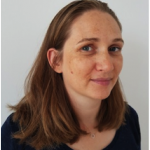 Magda Roszczyńska-Kurasińska, PhD in psychology and economics. Her main research interests focus on policy modeling, behavioral finances, phenomena of trust and peer production communities. She runs the Laboratory of Experimental Economic Psychology analyzing the influence of social context on the economic decisions. Moreover, she has been working in the area of policy modeling, gaining expertise in transferring the narratives provided by stakeholders into policy models. Engaged in development, realization and management of European Open Collaboration for Policy Modeling.
Magda Roszczyńska-Kurasińska, PhD in psychology and economics. Her main research interests focus on policy modeling, behavioral finances, phenomena of trust and peer production communities. She runs the Laboratory of Experimental Economic Psychology analyzing the influence of social context on the economic decisions. Moreover, she has been working in the area of policy modeling, gaining expertise in transferring the narratives provided by stakeholders into policy models. Engaged in development, realization and management of European Open Collaboration for Policy Modeling.
Being a participant of the ICPSR Summer School in Quantitative Methods of Social Research was very enriching in terms of knowledge and new skills experience. What was the most striking for me was not only the teachers’ proficiency in teaching of statistical techniques and analysis of data but also their readiness of engaging in discussion with students. I was really impressed by the way how teachers were devoted to explain in a simple manner even the most difficult statistical matters and tried not to leave anyone behind. Their training techniques were superior and served me as inspiration for my further teaching challenges.
◊◊◊
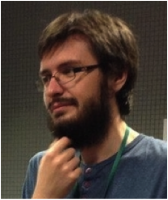 Wiktor Soral is a researcher at the Center for Research on Prejudice in Robert Zajonc Institute for Social Studies, University of Warsaw. His research is focused on how people experiencing negative socio-psychological states (e.g. lack of control, uncertainty, existential threat) process social information, related to self, in-group and out-group.
Wiktor Soral is a researcher at the Center for Research on Prejudice in Robert Zajonc Institute for Social Studies, University of Warsaw. His research is focused on how people experiencing negative socio-psychological states (e.g. lack of control, uncertainty, existential threat) process social information, related to self, in-group and out-group.
I attended ICPSR Summer Program in 2014. I heard a lot of positive opinions about the Program before, but still everything exceeded my expectations. The place, the people, and the entertainments were fantastic, but what I really loved is that literally everyone was enthusiastic about social sciences methodology and statistics. Talking about full information maximum likelihood estimation was not regarded as peculiarity, but rather it was heartily welcomed. Overall, attendance to ICPSR Summer Program not only increased my statistical knowledge and expertise, but it also shaped my identity and my plans for the future. In my work I am often recognized for taking innovative methodological approach (e.g. using Bayesian approach to data). This would not be possible without participating ICPSR Summer Program.
